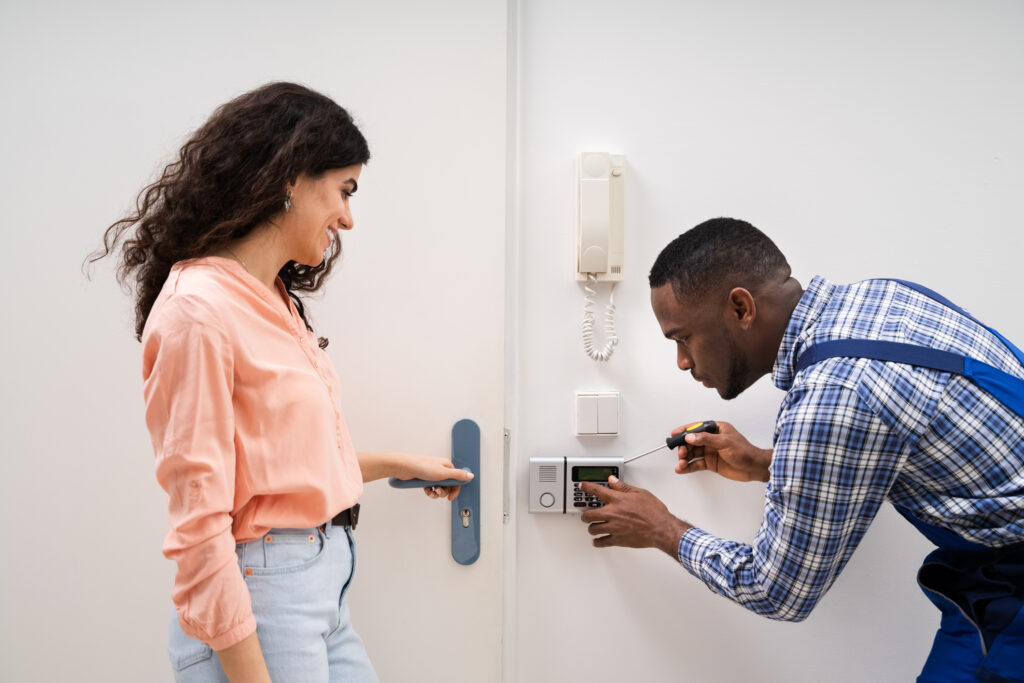Tips for Choosing the Best Lock for a Front Door
Your front door is the first line of defense for your home. A weak or outdated lock can leave your property vulnerable to break-ins, while a strong, well-chosen lock can significantly increase your security. With so many types and features available, it’s important to understand what makes a lock effective before making a decision.
Understanding Why Lock Choice Matters
Choosing a front door lock is not just about aesthetics or convenience. It’s about protecting your family, belongings, and peace of mind. A poorly selected lock can be picked, bumped, or forced open in seconds. Meanwhile, a well-made lock with the right features can deter burglars and provide long-lasting durability. When considering your options, think beyond the initial cost and focus on long-term performance and security.
Types of Locks to Consider
Deadbolt Locks
Deadbolts are one of the most secure front door locking mechanisms. They come in single-cylinder and double-cylinder options. Single-cylinder deadbolts have a keyhole on one side and a thumb turn on the other, making them easy to use but less secure near glass panels. Double-cylinder deadbolts require a key on both sides, which offers more security but can be inconvenient in emergencies.
Smart Locks
Smart locks combine convenience with advanced technology. They can be unlocked via smartphones, keypads, or even voice assistants. Some models offer remote access, allowing you to lock or unlock your door from anywhere. While they are highly convenient, it’s important to choose a reputable brand with strong encryption and regular software updates to reduce hacking risks.
Mortise Locks
Mortise locks are durable, high-security options commonly used in commercial buildings but also suitable for residential properties. They fit into a rectangular pocket in the door and are known for their strength and longevity.
Keyless Entry Systems
Keyless systems eliminate the need for physical keys, using codes or biometric authentication instead. They are ideal for households that want quick access without worrying about lost keys. However, they require reliable power sources, either through batteries or hardwiring.
Security Features to Look For
- Grade Certification: Locks are graded by the ANSI/BHMA system, with Grade 1 being the highest level of residential security.
- Anti-Pick Pins: These make it harder for intruders to manipulate the lock using lock-picking tools.
- Reinforced Strike Plates: Strong strike plates with long screws can prevent forced entry by securing the lock deep into the door frame.
- Bump Resistance: Choose locks specifically designed to resist lock bumping, a common burglary method.
Material and Build Quality
The material of the lock affects both durability and security. Solid brass, stainless steel, and hardened steel are strong choices. Avoid cheap alloys or plastic components, as they wear out quickly and can be easily compromised.
The door itself should also be sturdy. A strong lock on a weak door will not offer much protection. Consider upgrading your door material if necessary.
Balancing Security and Convenience
While maximum security is the goal, you should also consider how convenient the lock is for daily use. A lock that is too cumbersome to operate may lead you or your family to avoid using it properly. Striking a balance between security features and ease of access is key.
For example, a smart lock with a backup key option offers both convenience and reliability. Similarly, a double-cylinder deadbolt may be ideal for security but could slow down your exit during an emergency. Choose based on your household’s lifestyle and needs.
Professional Installation vs. DIY
Even the best lock will fail to protect your home if it is installed improperly. Professional locksmiths ensure the lock is fitted correctly, aligned with the strike plate, and reinforced where necessary. While DIY installation may seem cost-effective, small mistakes can lead to security vulnerabilities. If you choose to install a lock yourself, follow the manufacturer’s instructions precisely and use quality tools.
Maintaining Your Lock for Long-Term Security
Locks require maintenance to function smoothly and remain secure. Regularly check for loose screws, misalignment, or wear on moving parts. Lubricate the mechanism with a lock-specific lubricant to prevent sticking. If your key becomes difficult to turn, address the problem immediately instead of forcing it, which can cause further damage.
When to Replace Your Front Door Lock
There are certain situations when replacing your front door lock is the safest choice:
- You’ve moved into a new home
- Your keys have been lost or stolen
- The lock shows signs of wear or damage
- You’ve experienced a break-in or attempted break-in
- You want to upgrade to a higher-security model
Replacing a lock in these scenarios ensures that old keys or compromised mechanisms don’t leave your home vulnerable.
Choosing the best lock for your front door is an investment in your home’s security. Consider the type of lock, its security features, the quality of materials, and the balance between convenience and protection. Whether you opt for a traditional deadbolt, a smart lock, or a keyless entry system, ensure it’s installed correctly and maintained over time. With the right choice, you can enjoy peace of mind knowing your home is well-protected.

